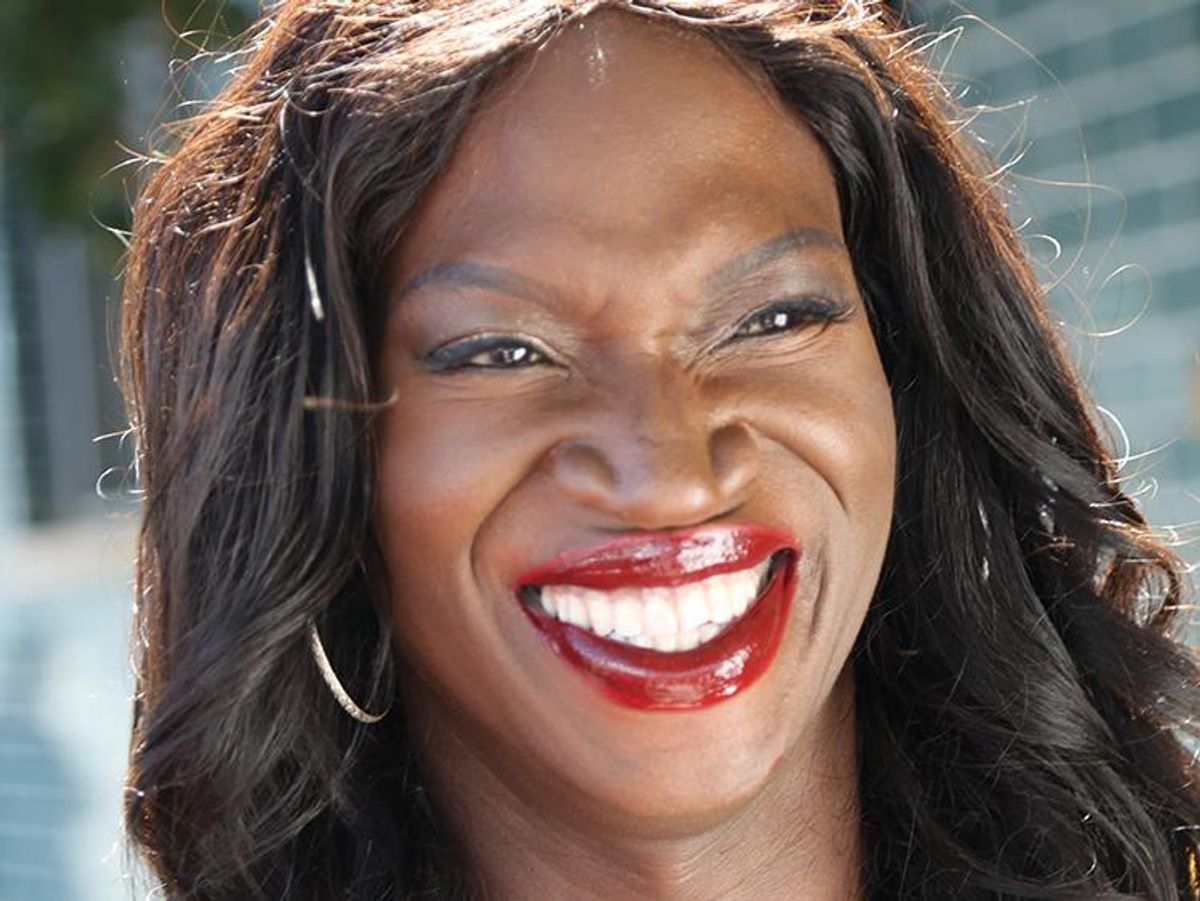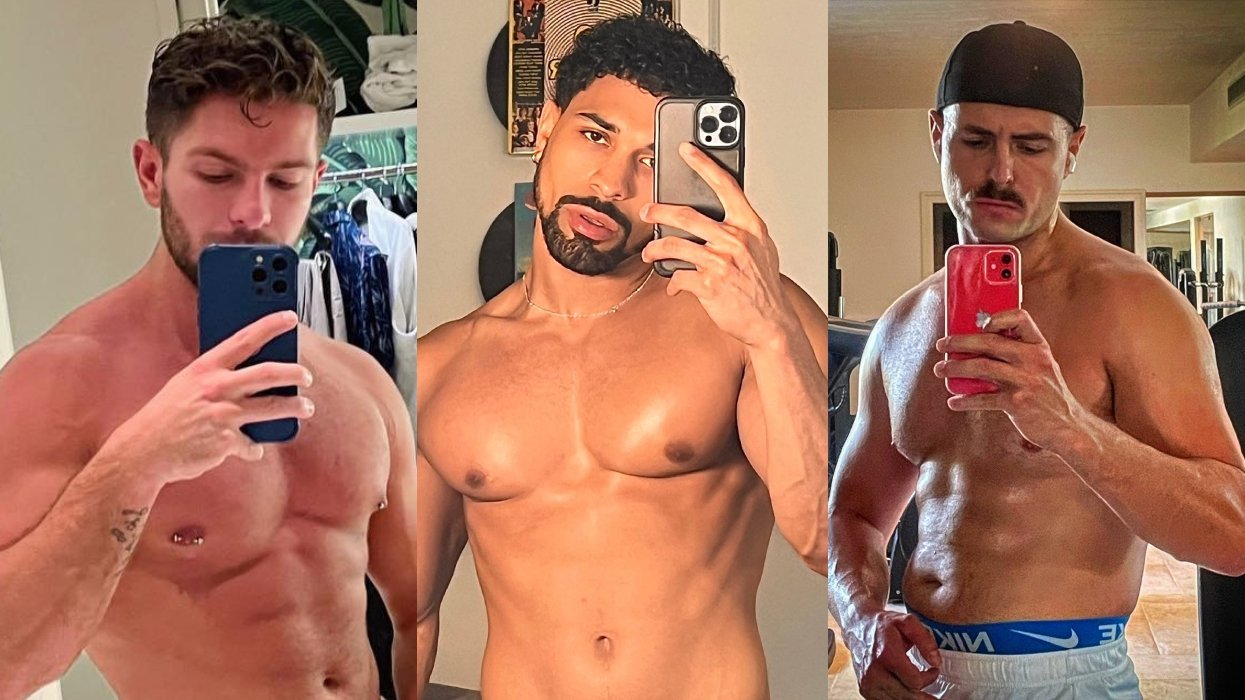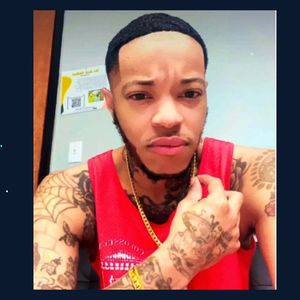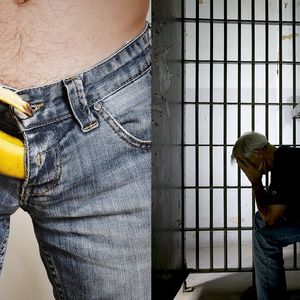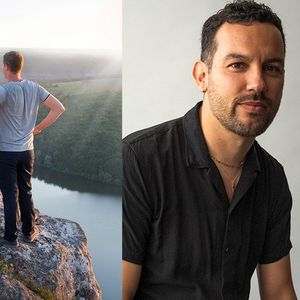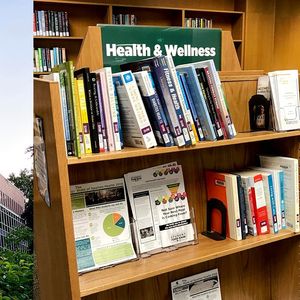Six years after being diagnosed with HIV, Sabel Samone-Loreca boarded a bus from Atlanta to Los Angeles with five friends and no money. She spent most of the four-day ride sleeping, not sure where she'd go when she reached the city. Her desire for a new life was made urgent by her medical prognosis: "They told me I had three years to live," she says. "I was petrified. I believed them. I felt I needed to see and do things in that time -- to live in a big way despite my fear."
That was in 1993. Samone-Loreca turned 49 in August, and she is not only still alive, but a beacon to Los Angeles's activist community -- especially to those fighting for the rights of people living with HIV.
Samone-Loreca, who identifies as a trans woman, has a long and varied list of achievements: the first trans person to work as a clinical social worker at Children's Hospital Los Angeles; one of the first trans women to serve on the city's Commission on HIV; the first Black trans woman to be featured in an "HIV Stops With Me" campaign, in 2002; the winner of the Quest Pageant, a national pageant for trans women, in 2005.
She was even the first known trans woman to be married in the state of California (in 2005, to her late husband, Luis A. Loreca).
It would be easy to tell the story of Samone-Loreca's life in terms of the number of obstacles she has pushed up against. "I'm a dark-skinned black trans woman with HIV," she says. "I'm supposed to be worth nothing. Many people expected me to do nothing, to accomplish nothing."
But to reduce her narrative to a litany of violences and barriers would obscure the ways in which Samone-Loreca continually learned to find a way forward, not just for herself but for those closest to her. "I feel like I only survived because of other people," she says. "And I was only able to work on behalf of other people because I survived."
For every bad break -- contracting HIV in 1987, when she was barely out of adolescence, from a boyfriend who had concealed his status -- Samone-Loreca emphasizes another, equally impactful encounter: a stranger who gave her a place to stay; a doctor who told her he'd do whatever it took to help her stop using drugs.
This good luck, when it strikes, is something Samone-Loreca has always felt compelled to share with those around her. At the Greyhound station in downtown Los Angeles, four days after leaving Atlanta, she found $100. She split the money among her friends, buying food and bus tickets to enable them all to get to San Francisco. There, she used what little she had to support other friends who were navigating addiction and homelessness -- whether that was cash, temporary housing, or medication.
"She spreads love in every single thing she does," her friend and colleague Brad Land says. "It's the constant thread through her life and work, through her struggles and her triumphs."
Growing up in Tampa, Fla., Sabel was an obvious target: visibly queer and gender-nonconforming, and darker-skinned than most of her friends and family. No matter her parents' open-mindedness -- her mother had many
gay and lesbian friends -- she came into contact with violence early and often. It left her with an unplaceable rage and a near-constant sadness that she struggled to shake.
"All in all, life wasn't happy for me," she says. "I was angry, and I was destructive in every way possible."
However she may describe herself, Samone-Loreca's friends all praise her profound ability to transform lives and create support.
"HIV has been a layer of stigma in my life," says Land, an HIV-positive activist. "But Sabel is living with so many more layers of stigma, and through that she always helps people understand. She has been a champion, out in front, getting services to trans people living with HIV."
Land, who organized with ACT UP at the height of the AIDS crisis, has worked alongside Samone-Loreca for years. "Had I known her 25 years ago, it would have changed the course of my life for the better," he says. "Sabel is one of those heroines that puts herself out there so that other people will feel less shame."
Samone-Loreca's trans identity, in particular, was the culmination of numerous encounters with trans women who helped to open her eyes to the potential of her own womanhood. In Tampa, the year after she was diagnosed with HIV, she was inexplicably drawn to a woman she spotted standing behind a makeup counter in a local mall.
"I went back for a few days, until I worked up the courage to introduce myself," she recalls. "She invited me to come with her Friday night to Renee's, a local gay bar. There I heard someone refer to this gorgeous woman with the pronoun 'he,' and it clicked for me: I can do that. That's where I was supposed to be."
The journey from that encounter at the Tampa mall to officially transitioning was not immediate; the ups and downs of addiction took Samone-Loreca on and off the streets in Atlanta, San Francisco, and Los Angeles. She bounced from relationship to relationship, getting clean and then using again. Her personal narrative is always interwoven with a sociopolitical one -- she emphasizes the role that trauma, and its impact on her sense of self-worth, had on her drug use. Coming from Samone-Loreca, a phrase that might sound cliche emerges as honest and instructive: "I didn't believe in myself," she says. "So I did what I had to do -- I did what I could do."
Susan Forrest, the adoptive mother of two daughters who call Samone-Loreca their auntie, describes a friend and family member who is staunchly committed, regardless of the hurdles.
"To be honest," says Forrest, "I was scared of her at first: this intimidatingly beautiful woman, with a face full of piercings. She's a tough-ass. But then she was family, and she refused to go anywhere."
Samone-Loreca and Forrest met five years ago when their mutual friend, the trans activist Alexis Rivera, was sick in the hospital with HIV. Rivera's brother and his two daughters had been squatting in her house; when she died, Samone-Loreca took them in. Forrest and her wife became their legal guardians, but Samone-Loreca has remained a staple in the lives of the girls, now ages 9 and 11.
"Sabel has this powerful effect on young people," Forrest says. "They trust her. That's why she's been so effective educating young people about HIV. She shares her story, and people know she understands what they're up against."
Sabel Samone-Loreca's weeks are now filled by commission meetings, committee appointments, and educational outreach engagements. Her goals are to reduce the stigma against trans women living with HIV and to increase her community's access to services.
She is a beneficiary of her own work -- she secured her apartment in downtown L.A. through a public housing program that she advocated for, after she lost a previous apartment and spent months searching for a new home, unable to find a lease because of prejudice from landlords.
"There are still struggles," she says, sitting on her bed, surrounded by photos of herself and those she's loved. "I still deal with stigma every day. But I just remind myself, you know, I'm still here. After all this, I'm still here. I haven't given up, and I want young people like me to know they don't have to, either."
Like what you see here? Subscribe and be the first to receive the latest issue of Out. Subscribe to print here and receive a complimentary digital subscription.
